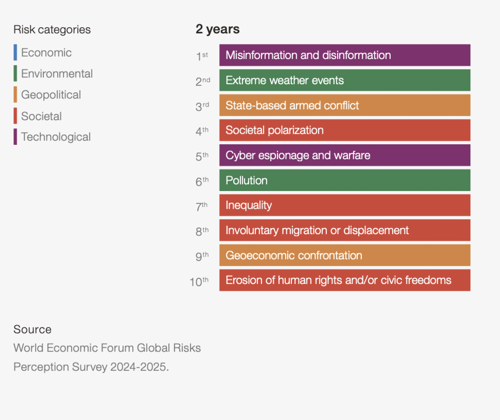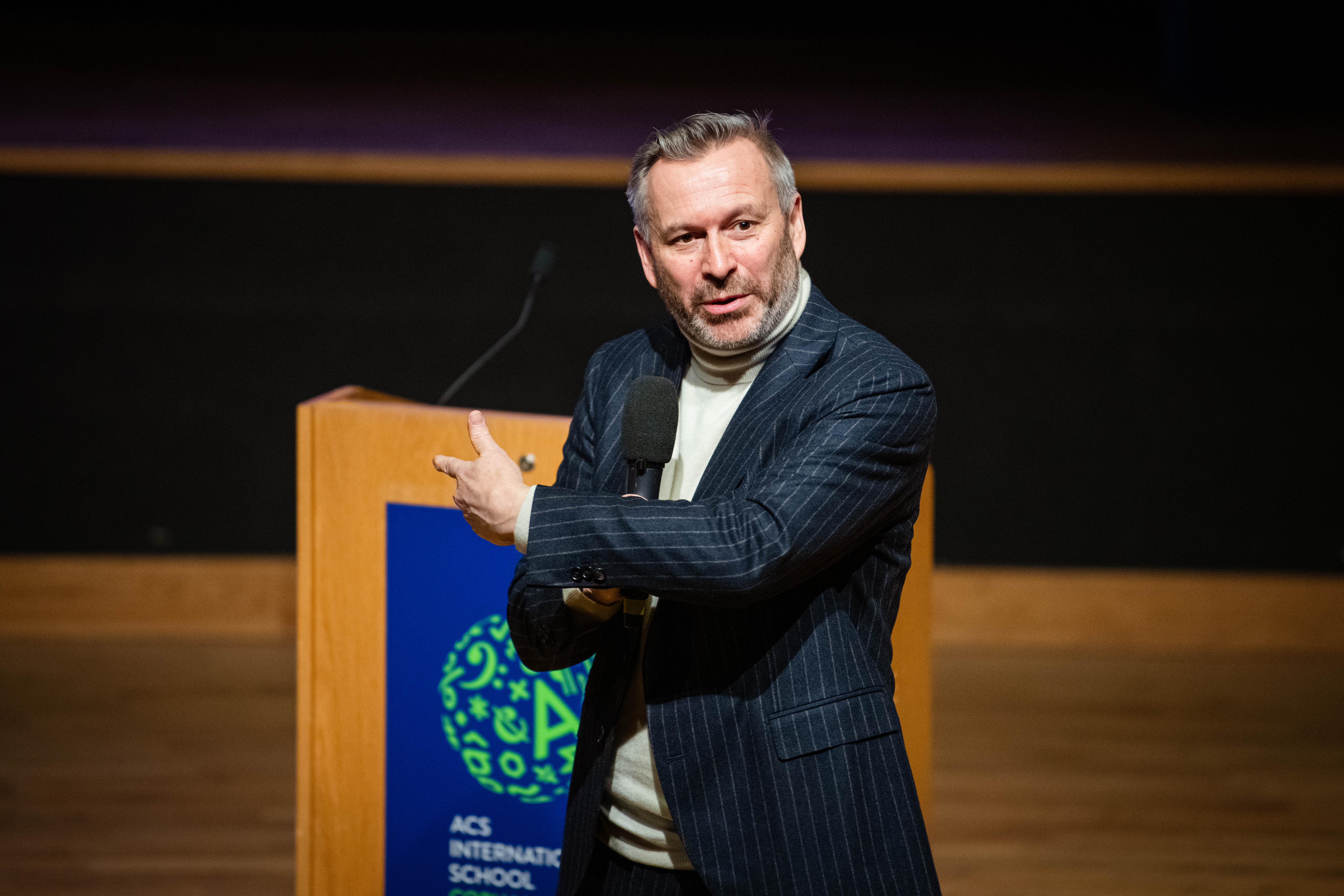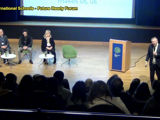Five Big Questions
Ian Gilbert was recently asked to deliver a keynote address and host a panel discussion for the prestigious ACS Cobham International School.
The event – Shaping Tomorrow: Exploring the Future of Education Today – was part of their Future Ready Forum series and was an opportunity to think about the shape of education policy, both across the ACS schools and beyond, in these quickly changing times.
** A live recording of the event is now available at the bottom of this page ***
Here, Independent Thinking Founder Ian Gilbert shares the Five Big Questions he put to the audience (in his inimitable style) along with three important conclusions when it comes to preparing young people for a world in which humans and AI work side by side.
Big question number one: Why do I need a teacher when I've got AI?
Echoing the title of Ian's prescient 2010 book, Why Do I Need a Teacher When I've Got Google?, we need to be thinking about what teachers bring to the learning that the likes of ChatGPT's latest tutoring abilities (see this earlier blog on the topic) doesn't.
Not yet anyway.
In his book The Beautiful Risk of Education, education academic Gert Biesta wrote about the 'the gift of teaching'. That special element that you bring to a learning situation that no one - or no thing - else can.
What's yours?
Big Question Number Two: Are schools doing enough to prepare young people to deal with various existential threats?
Fancy a game of Doomsday Bingo?
The WEF recently set out their latest Global Risks Perception Survey for 2024-25.
This is their top ten list for the next two years:

And this is the list for the next ten years ahead:

Notice the proliferation of green boxes as we move from fighting each other to fighting for our survival.
Big Question Number Three: Are schools doing enough to help young people counter deliberate misinformation and inherent bias?
We've written about this before (here and here).
Notice the distinction between 'inherent bias' and 'deliberate (shall we call it 'mendacious'?) misinformation.
Deep fake technology is here to stay.
Which means situations likes this one are only going to appear more often.
Who will be next?
Big Question Number Four: Are we at risk of becoming dumb (and dumber) as a result of technology (and does it matter)?
 “If you have one bucket that contains two gallons and another bucket that contains seven gallons…
“If you have one bucket that contains two gallons and another bucket that contains seven gallons…
…how many buckets do you have?”
Losing the ability to think for ourselves is one thing.
Yet, do we really need to learn some of the skills at school that we have taken for granted for so long?
As Sugata Mitra has suggested, perhaps it's time reading, writing and 'rithmetic were replaced with comprehension, communication and computation?
Big Question Number Five: As society evolves, what's needed next for humans and machines to work intelligently together at home, work, and school?
Here, Ian suggested three areas we need to focus on as human beings:
1. Thinking about thinking - articles like this one express the importance of developing our ability to think about thinking as we interact with machines (which don't think; they process).
This line from the article really stands out:
“In the division of labour between humans and AI, the human will be dealing with the novel and ill-defined tasks.”
Our ability to deal with the unexpected, with the novel, with the illogical, with the vague, with intuition and hunches, dreams and aspirations helps us stand out from the logic engines.
Or as the Nobel Prize-winning physicist Nils Bohr put it once to his students, 'You're not thinking. You're just being logical.'
2. Thinking about what makes me, me.
Who are you? What do you love? What do you hate? What is your passion? Your motivation? Who do you love and who loves you? Where have you come from and where do you want to go? What ideas do you have no-one else has? What combination of skills and drives do you have that set you apart? Why should I spend time with/employ/marry(!) you and not a machine?
3. Thinking about what makes us, us.
We've written about Sir Anthony Seldon's 'seven core facets of humanity' here. To what extent is schooling in the 2025 developing them as we take our place alongside the machines?
These are big questions but, currently, questions are all we have.
(If you meet anyone who claims to be able to tell you what the future of education looks like, then ask them for this weekend's lottery numbers too.)
We are in a period of uncertainty, so there is one final important question for us all:
To what extent do you wish to shun that lack of certainty or are you happy to live with it, embrace it even, and be one of those educators helping shape the future of education? [ITL]

This is the video of the event, recorded and edited by a team of students from the school.

If you would like Ian Gilbert to work with your school or organisation as you start to address the big questions about where next for education, then please get in touch for a free, no-obligation chat.
Call 01267 211432 or email us.
A human being will get back in touch reassuringly quickly.
Enjoy a free no-obligation chat.
Haggle a bit. Make a booking.
Call us on +44 (0)1267 211432 or drop us a line at learn@independentthinking.co.uk.

About the author
Ian Gilbert
Ian Gilbert is an award-winning writer, editor, speaker, innovator and the founder of Independent Thinking. Currently based in Finland, he has lived and worked in the UK, mainland Europe, the Middle East, South America and Asia and is privileged to have such a global view of education and education systems.